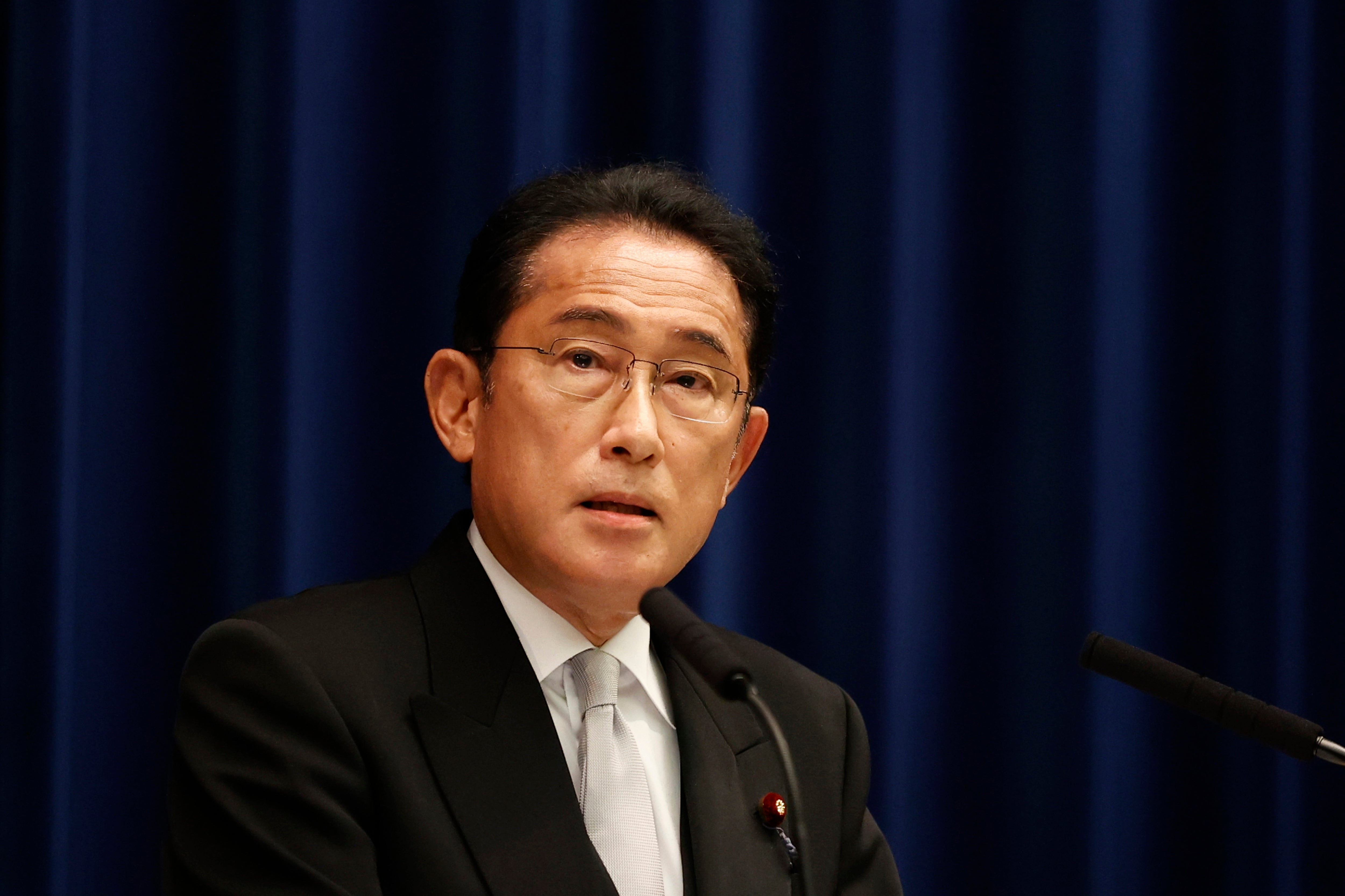Japan PM Kishida publicly apologises for party ties with controversial Unification Church
Kishida to also make it ‘party policy’ to end ties with the church

Your support helps us to tell the story
From reproductive rights to climate change to Big Tech, The Independent is on the ground when the story is developing. Whether it's investigating the financials of Elon Musk's pro-Trump PAC or producing our latest documentary, 'The A Word', which shines a light on the American women fighting for reproductive rights, we know how important it is to parse out the facts from the messaging.
At such a critical moment in US history, we need reporters on the ground. Your donation allows us to keep sending journalists to speak to both sides of the story.
The Independent is trusted by Americans across the entire political spectrum. And unlike many other quality news outlets, we choose not to lock Americans out of our reporting and analysis with paywalls. We believe quality journalism should be available to everyone, paid for by those who can afford it.
Your support makes all the difference.Japan’s prime minister Fumio Kishida has publicly apologised for his party members’ ties with the controversial Unification Church.
Several Japanese politicians, including many from the ruling Liberal Democratic Party (LDP), revealed their ties with the Unification Church, a religious group which is officially known as the Family Federation for World Peace and Unification that started first in South Korea.
Amid declining popularity, Mr Kishida on Wednesday said the LDP would make it “party policy” to end ties with the church and sever ties with erring members of his party in a bid to earn public trust once again.
“There are still many people who are concerned and suspicious of strong ties... due to a number of media reports on the matter. For this, I offer my sincere apologies as the president of the LDP,” he said.
Earlier this month, the prime minister also reshuffled his cabinet, which was seen as an attempt to gain back public support. His public approval ratings have lately plummeted.
The issue of politicians’ ties with the church came into sharp focus after the assassination of former prime minister Shinzo Abe on 8 July.
Calls have now grown for there to be no state funeral for Abe, which is to be funded from taxpayers money, reported Reuters.
Tetsuya Yamagami, the suspect in Abe’s assassination who is held in detention, has said his family was driven to bankruptcy because his mother donated huge sums to the church.
He also said Abe was “not my true enemy. He is only one of the Unification Church’s most influential sympathisers,” he wrote.
It was reported that Abe had links with the controversial church and had praised its emphasis on family values.
His comments have been met by sympathy from some quarters of Japan’s public who have urged for prosecutorial leniency for him.
LDP secretary-general Toshimitsu Motegi had last month stressed there to be “no relationship” between the party and the church.
“I would like to warn each and every LDP parliamentarian to be vigilant and cautious about their relationships with organisations that have been pointed out as having social problems,” he told reporters at the time.
He promised that the LDP will launch an internal probe of its lawmakers’ links with the religious group.
The Unification Church was founded in South Korea in 1954 by Rev Sun Myung Moon, a year after the end of the Korean War.
It has had numerous run-ins with Japanese police over allegations of fraud in its alleged high-pressure fundraising tactics. The church also claims a membership of 2-3 million globally.



Join our commenting forum
Join thought-provoking conversations, follow other Independent readers and see their replies
Comments